This post is also available in:
 Tetun
Tetun
It’s seven o’clock in the morning in Bristol and the sky is heavy with grey clouds. Dialing into Google Meet, I am met by a warm smile and welcome from Mima as she tells me that the weather in Timor-Leste hasn’t been much better recently, with the rainy season in full swing. I’m meeting with Mima to hear more about her journey on and off the water.
Throughout her life, Mima has been challenging the traditional role of a Timorese woman, and in 2019, she became Timor-Leste’s first female PADI Divemaster. After achieving her scuba diving certification through her work with Blue Ventures, Mima went on to become a Science Assistant, collecting important data on the state of marine habitats and is now a Community Liaison Officer sharing her knowledge and inspiring others to get involved with locally led marine conservation. After watching her film I was amazed by her story and how she had overcome so many challenges along the way. I knew I had to learn more.
Diving straight in, I ask Mima to start at the beginning.
Charlie (C): So tell me, when did you first become interested in the ocean?
Mima (M): From a young age I loved the ocean and would spend a lot of time in it. I would often go swimming with my friends and sisters, and being from a fishing family meant I spent a lot of time helping my parents driving boats and putting out nets. But I spent most of my time swimming above the seagrass beds on the shorelines – I never went out to deeper water until I started diving.
C: You clearly had a strong connection to the ocean from a young age, but how did you go from swimming in the shallows to diving with Blue Ventures?
M: My journey into diving started with learning English. A lot of my older friends could speak English really well and I wanted to be as good as them. I attended some classes as a child, but I didn’t get to finish them. But then, when I was a bit older, I got a job on a tourist boat, delivering safety presentations to customers. This gave me an opportunity to practice and improve my English.
A few years later, in 2016, Blue Ventures arrived in Timor-Leste and approached my boss to ask if any of his staff would be interested in learning to dive. All of my friends were too afraid to accept the offer, but I wasn’t. I realised that this was a once in a lifetime opportunity to do something no woman in Timor-Leste had done before. And so I joined Blue Ventures and started training!
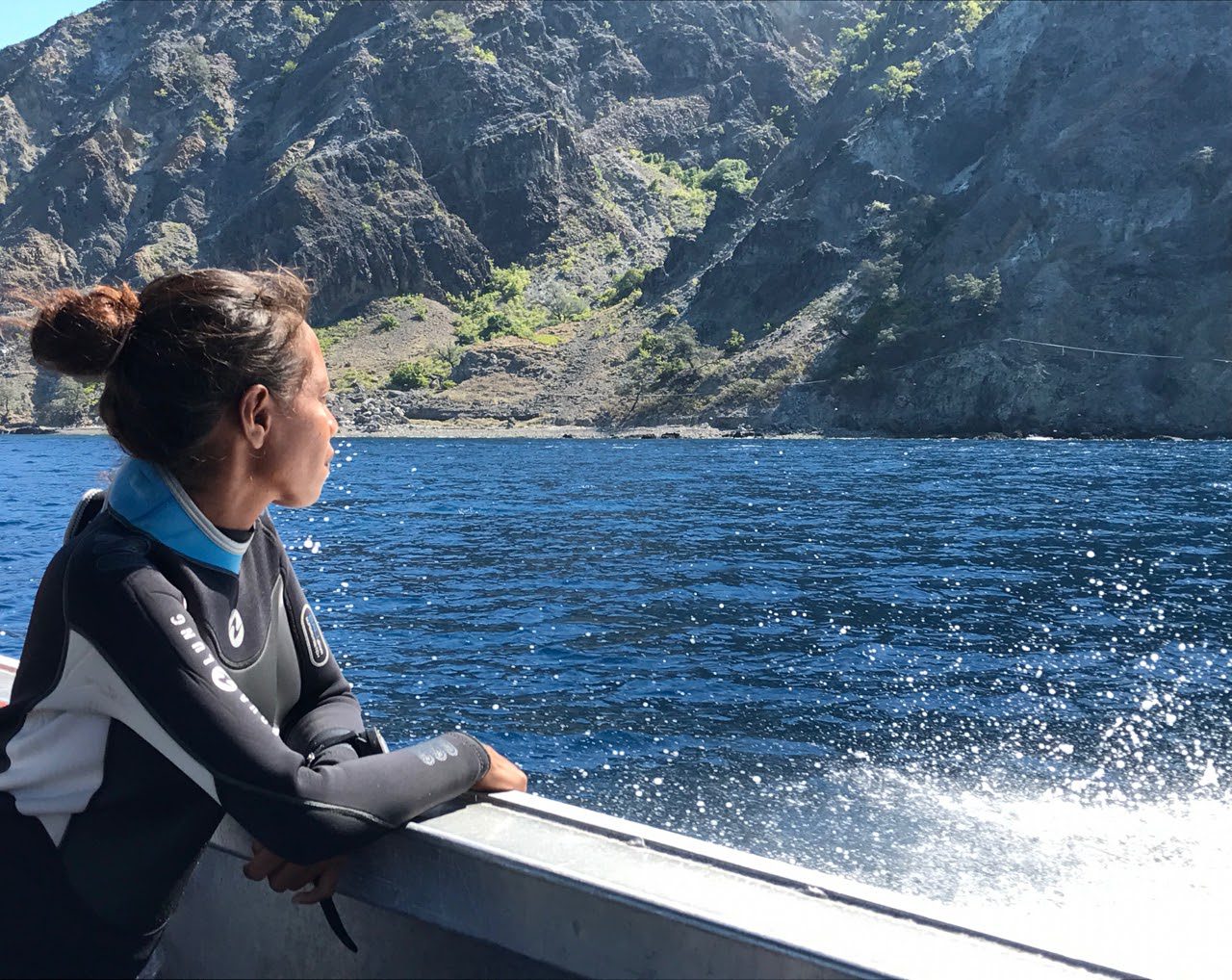
Mima takes a quiet moment to enjoy the scenery on her way to a dive site | Photo: Christina Saylor
C: How has diving changed your life?
M: On the first day of training I remember seeing all of the equipment and feeling nervous about the amount I needed to learn. I was also quite apprehensive about getting in the water. But in that same moment I told myself, “You can do this”.
Since then I have never looked back! As a child I was scared to go deep in the ocean, but now I have the confidence to explore the places I was once afraid of.
C: In the film, Laura talks about how some of the members of your community were worried about you learning to dive? How did you overcome the challenges you faced?
M: It’s true. When I first started my training, I was met by a lot of negative comments from the community and my family was worried about me diving. Many people told me that women from Timor-Leste shouldn’t dive. People would use all sorts of excuses to try and put me off. I was told I was a simple woman and if I went diving that I would have lots of problems with my body. Some said that diving would mean I couldn’t have children and that no one would want to marry me. Others said that my lungs would explode and that I shouldn’t dive because my family wouldn’t be able to pay the medical bills if something happened. Some of these comments really scared me.
But in the end I decided to ignore them. I didn’t give up because I knew God was always with me and I was determined to be successful in life. Thankfully I had a lot of support from my Blue Ventures colleagues like Laura. I loved my training and being around these people. They kept me going even when things got tough!
C: How has your story empowered other women in your community?
M: The women in my community have watched my journey from dive student to Community Liaison Officer and they’ve started to see things from a new perspective. Many women now come to me asking for advice on how they can do what I do.
It makes me happy to see so many women taking an interest in my work. I love sharing my experiences with them and I always do all I can to support them. Some of these women now work with me to monitor the seagrasses meadows around the island. In Dili, Blue Ventures is also planning to train more female divers so that they can help to monitor local reefs – it’s amazing to see so many Timorese women taking an interest in diving!
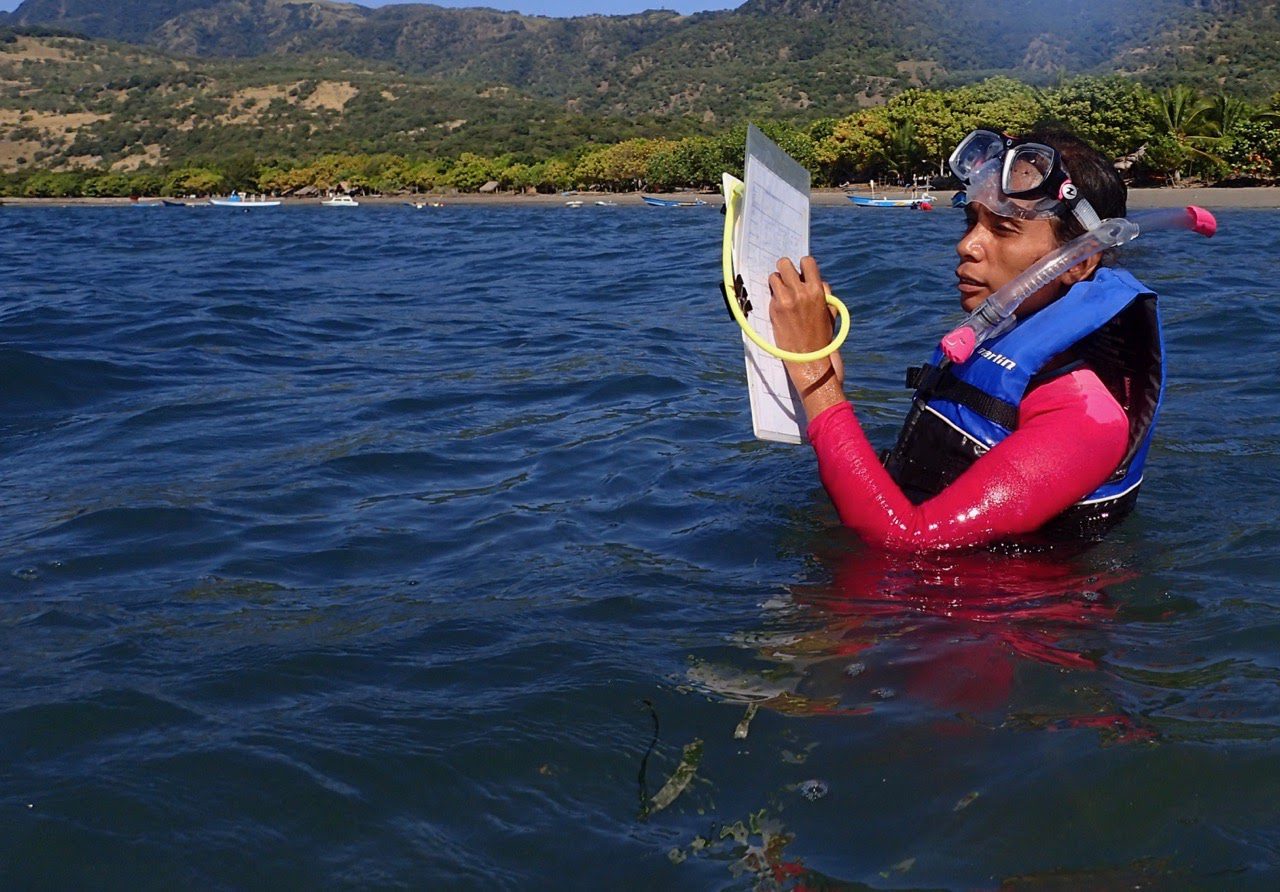
One of Atauro’s seagrass team members collecting data during a snorkel survey | Photo: Christina Saylor
C: So what is the traditional role of a woman in Timor Leste? How are they involved in fisheries?
M: Women know how to fish and there are women who go gleaning (fishing along the shore at low tide) and some who freedive with spearguns. But traditionally the role of women is to stay at home, look after the family and cook. But now things are changing. Women now have careers outside of the home and can work in lots of different industries and we are recognised as being capable of much more.
C: Why do you think it’s important that more women dive and get involved in the work you do to protect the marine environment?
M: I think it’s important more women get into diving and monitoring because it’s helping to challenge gender barriers. Women are strong and powerful and can do all the same things men can do. We should be treated as equals.
Through community learning and marine monitoring, we can make good things happen – I love sharing this message with other women.
C: So what does the future hold for you? What are you going to do next?
M: I really want to keep helping the community and teach more people about the importance of our oceans. I hope to take this message to other communities around Atauro and to other communities on the mainland. All of the communities here are dependent on the sea and since starting my work I have heard so many stories of the steady decline of fish and corals on our reefs. I want to share data with these communities and inspire them to help stop overfishing.
Secondly, I would also love to bring more economic stability to communities on Atauro. I would love to keep helping families develop alternative incomes instead of having to go fishing everyday.
Lastly, I would love to get my dive instructor certification and train women how to dive. Some of my friends have already started their open water and we would love to start a diving business together. I also recently got married and now have a baby daughter!
C: Congratulations! That is wonderful news. How are you finding being a mother and working?
M: It’s definitely a lot more responsibility, but my family has been very supportive. They are so happy that I have such a good job and are very proud of all I do.
C: What advice would you give to another woman who wants to do what you do?
M: My advice is don’t listen to negative comments. When people say you can’t do it, don’t listen to them. Believe in yourself, keep going and you will succeed.
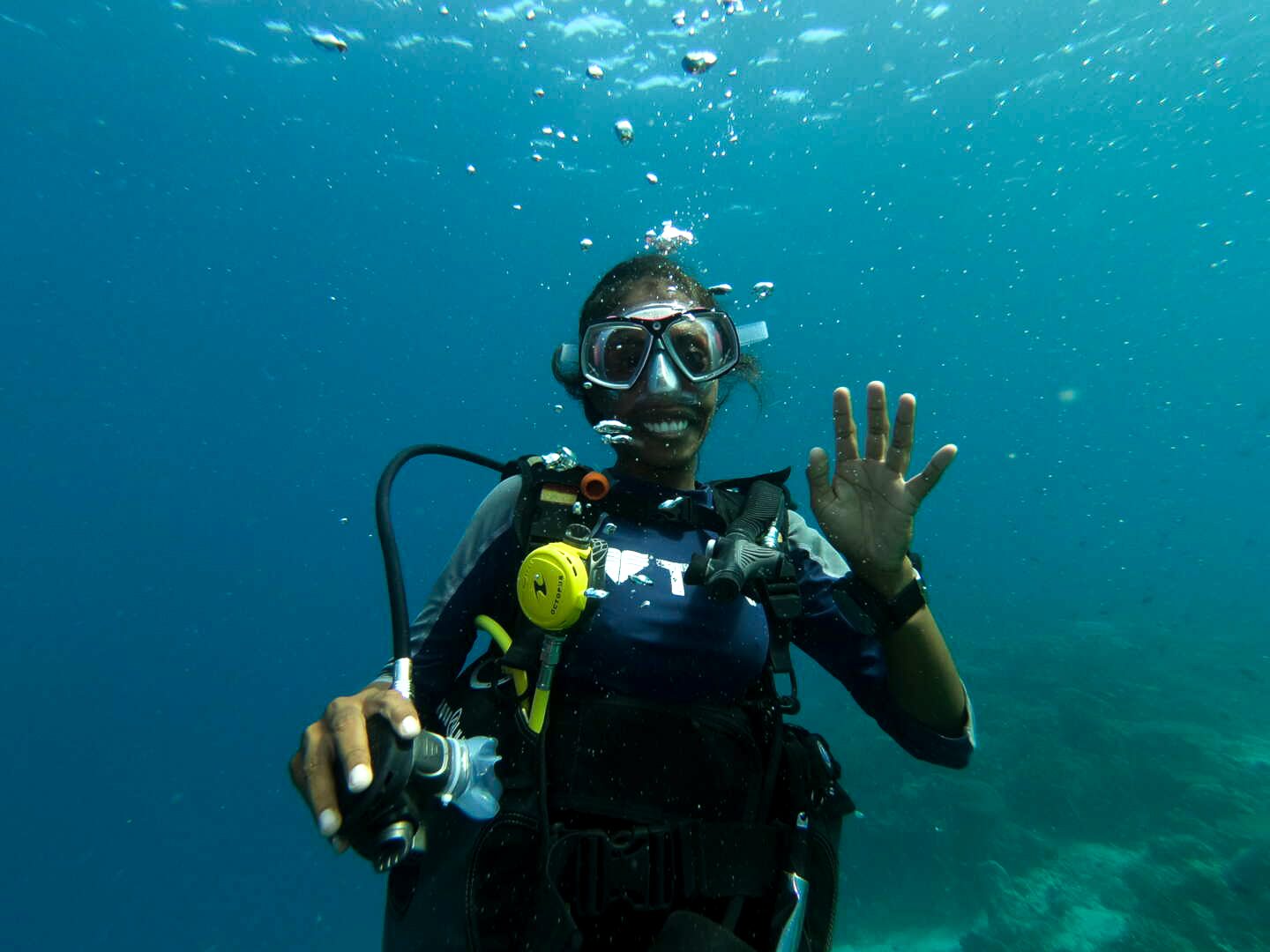
A friendly wave beneath the waves | Photo: Laetitia Clément
Mima’s inspiring story is a lesson that no matter how many barriers you face, if you choose to challenge them, incredible things can happen. Mima has had to work hard to overcome the gender norms in her community, and has met a lot of negativity along the way. But as a result of her passion to succeed, she has become a catalyst for change and created a lasting legacy for female empowerment in Timor-Leste.
Learn about how women in Timor-Leste are getting involved in fisheries monitoring
Find out more about Mima’s marine conservation efforts
Explore our other celebrations for International Women’s Day 2021
Meet Mima in this short film, created by Tom Hill, an award-winning filmmaker working in Timor-Leste. You can find more of his films here





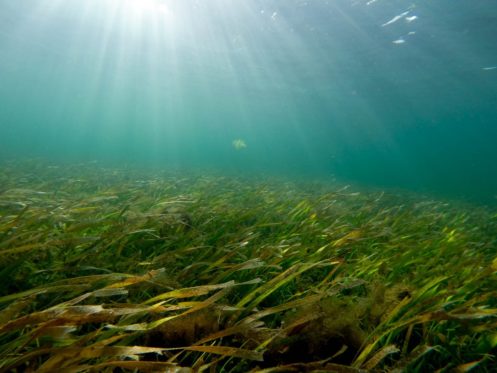
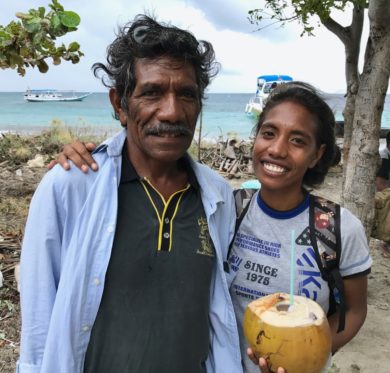
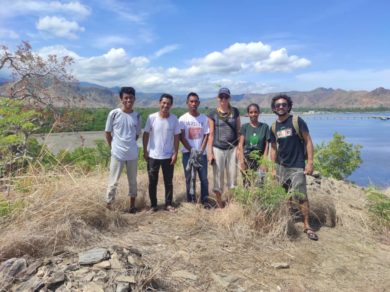
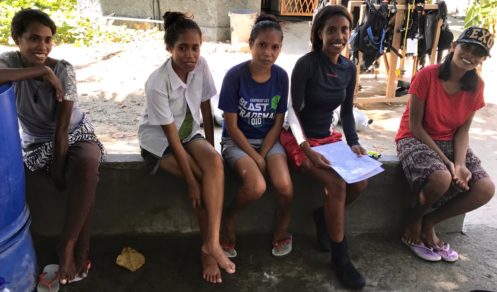
As a former BV volunteer in Timor Leste, I am excited to learn that Mima is becoming more successful and influential in her profession and her community. I got tears of happiness hearing that she is married and has a daughter!!
Knowing her, and working with her, are the best memories of my time in Atauro. It was a privilege to learn from her.